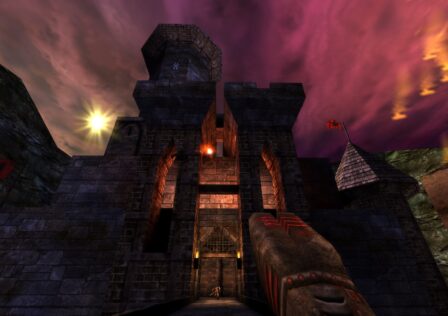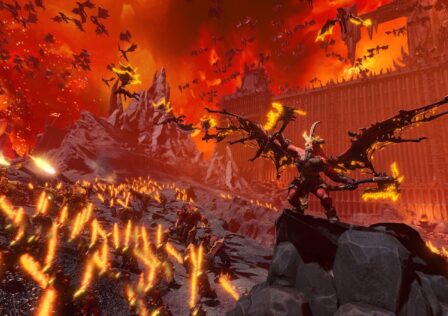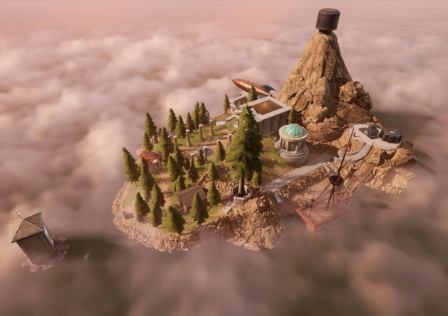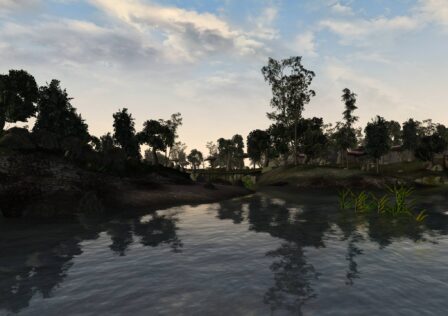There is a pattern in the gaming industry in which game reviewers from the most popular gaming websites around (all the ones you can think of) happen to be comically incompetent at games. This has led to appropriate memes such as game journalist mode, which refers to a ridiculously easy difficulty mode where the player hardly has to do anything. Whenever you see a game that has positive reception from users (e.g. the overall user rating on Steam and other places) but mostly negative reception from the press, the reason is almost certainly because the game has some amount of difficulty, that is typically not even very high (which we’ll prove in a moment with several such games), and the reviewers were just too comically impatient to get through it.
The problem is, these people have influence over the general consensus, and they will unfairly criticize games for being what they consider “overly difficult” when in reality, they usually are not too hard. Most recently, this has happened with Pathologic 2, a recently released game by Ice Pick Lodge that is a remake of Pathologic which is another notoriously difficult game. Yet this is another straightforward game that really isn’t that hard. In this article we will reveal how misleading popular game review sites are about difficulty.
Difficulty is not a bad thing
As a game reviewer, it is my responsibility to review games as objectively as possible, otherwise I am doing everyone a disservice. Failure to do this is a major problem with every mainstream gaming website. For example, we have to acknowledge and accept that not everyone is as ‘skilled’ or as ‘bad’ as us at gaming. I can’t just repeatedly fail at a game and then write a bad review saying it’s too hard. Why is it too hard? Is it synthetic difficulty, or is it logical? All of these things are critical.
Now let’s tackle this issue directly. Gamespot’s review of Pathologic 2 states the following:
“In practice, Pathologic 2 has you rummaging through every trash can, hitting up every NPC for a trade, and breaking into every home you pass in the hopes of finding a way to support the dozen or so meals you need to consume each day just to stay alive.”
“Worse, this tedious busywork is a huge distraction from the reasons why you’re doing any of it. I love all these strange people, and their haunting, inscrutable ways. I want to understand their strange, bleak lives in this strange, bleak town. But the trials you’re forced to endure to reach that understanding are too painful. It hurts.”
Ignoring the fact that the review is more of a brief overview with minimal analysis yet dishes out a score of 5/10, let us tackle these statements one at a time. The first one actually does touch upon one legitimate issue, and then blows it out of proportion to the point where it fails as a supporting argument for their conclusion. The legitimate issue is, your character gets hungry too quickly. The amount of food he has to eat is far beyond what a person actually requires on a daily basis. However, objectively you do not need to hit up every NPC, rummage through every trash can, or break into every home you pass. Not even close. I have evidence of this as I am recording my entire playthrough. I have not once broken into a house as I write this (edit from the future, I eventually did, but not for several in-game days since the virus outbreak).
The point of Pathologic 2 is to make the player feel desperate throughout; that terribly incomplete, untruthful Gamespot review even acknowledges this. I am hungry throughout the game, hungrier as time goes on because there is literally no food being brought to the town, but to get by I only have to continuously trade with NPCs. You need to scavenge and trade, but that’s realistic and logical. You can see in my videos that the frequency at which I do these things does not extend to breaking into houses, trading with every single NPC and scavenging every single trash can or dumpster. But there is the issue of unrealistically rapid hunger. That is synthetic difficulty that is thus illogical, so I will be holding this against the game in my review.
The second statement is hilarious. Let me retort using another statement from that same review:
“You’re in a desperate situation, there’s a plague that has everyone scared, there’s a genuine shortage of supplies, so yes, it makes sense that you’d be forced to scavenge for scraps of food and barter with other townsfolk for some repairs to your clothes. The idea is sound.“
They acknowledge that it makes sense that you’d be a beggar in a desperate situation. Therefore, it makes sense for it “to hurt.” It is internally consistent, logical, therefore the only thing to complain about here is that your character gets hungry too quickly. This review acknowledges that the game is meant to be hard and desperate, then criticizes it for this anyway. Contradicting, inconsistent, unreliable review. You will see a proper one from us soon enough.
Now, allow me to give you some concrete, objective examples without hyperbole as to why Pathologic 2 isn’t a very difficult game. Every player will suffer from hunger throughout the game, yes, but as my videos show it is easy to avoid starving to death. When it comes to combat, early on you will get into scuffles, typically with 1-2 NPCs. Some may or may not carry weapons such as knives. The thing is, even in these scenarios, your character at full health is superior to one of these NPCs at full health, to the point where the game is balanced essentially 2:1 in your favor. If a game favors the player in such a way, it should not be called difficult as that is misleading.
Unless you’re already wounded and exhausted, single handedly taking down two of these NPCs is not so difficult. Three is a big problem, but it is rare that you’ll encounter such an event and it is possible to flee from them. Fighting soldiers head-on will put you at a disadvantage typically, but chances are this will be unnecessary.
Quests are not confusing in Pathologic 2, since the game has very precise objective markers. For example, a character called Notkin learned that “Death” had taken up residence in the town in an abandoned house. He had narrowed down which district he believed to contain the house, but the game marks the exact house on your map anyway. So anyone would go straight to this house, and end up stopping a plague outbreak in this district, averting disaster simply by following a map marker like a casual game even.
Other quests throughout the game will be marked like this, you’ll just have to pick and choose which ones to follow since you cannot possibly do them all. But it is not difficult. The surgery, diagnosis, and medical treatment mechanics are aptly explained and very simple and straightforward. Don’t just take my word for it, see for yourself.
The S.T.A.L.K.E.R. games were also unfairly criticized, with the media making similar suggestions that they are more difficult than they really are. There are two clear cut objective reasons that prove why these games are not very hard compared to other shooters: the first is the ability to manually save or quicksave and quickload anywhere, at any time. So even if you die, as long as you pressed the quicksave key beforehand, you won’t lose any progress. This is the mark of a game that’s not going to be difficult.
The other reason is how open they are. They are sandbox, open world games. A difficult encounter relative to the S.T.A.L.K.E.R. games would be the one pictured above: just a massive mutant horde. But you have so much free space, and a speed advantage over literally every mutant in the game (except for the Chimera in Call of Pripyat and mods only), therefore you can simply outrun them and outmaneuver them. If you’re heavily encumbered then outrunning them would often be a problem, unless you can find a tall enough obstacle to jump on top of, which most mutants won’t be able to climb.
Even if you encounter a challenging situation in a more confined space, such as the infamous Bloodsucker Village location, you can run into a house and up the stairs into an attic, and mutants cannot follow you up there. Even NPCs won’t be able to, unless you’re using certain mods.
These things do not require gaming experience to know, they are common sense. Things anyone should do instinctively.
Because you have so much free space to work with, and due to limitations of AI in every single video game, you can be outnumbered 30:1 by military soldiers and only be equipped with a simple Makarov PM pistol, but still come out ahead easily enough because you can run around and flank them and just shoot them in the head. Maybe you’ll die once or twice, but due to the ability to quicksave and quickload, this hardly increases the difficulty.
That isn’t to say there aren’t any legitimate criticisms for the difficulty of S.T.A.L.K.E.R. The point is, there are valid and invalid criticisms based on logic and objectivity, and most reviewers make too many invalid ones as mentioned above. Valid difficulty-related criticisms for S.T.A.L.K.E.R. include unrealistically bullet-spongey enemies, zombified stalkers having excellent accuracy and able to reload their guns, and guns being unrealistically inaccurate.
Deus Ex is another game known to be very difficult, although this game was actually universally loved. It is funny that they call this game difficult though; while you are almost always outnumbered in combat, the player character is so superior to everyone else in the game except for 2 “bosses” that it’s never a challenge, but always fun at least. And all of these bosses can easily be killed in one shot. Fun fact: these bosses cannot do the same to the player. Also, this is the hardest difficulty mode. Compare this to boss fights in DOOM (2016) on Nightmare, an actual difficult game.
Sure, you can be killed with a single headshot from a sniper, and those enemy snipers will do it if you give them the opportunity, but it is so easy to never give the opportunity due to the game’s stealth abilities, not even counting the more advanced augmentations you’ll unlock that lets you see all enemies from a distance, through some walls even, turn invisible, have superhuman agility, and more. Like S.T.A.L.K.E.R., it is so open ended that you will almost always have freedom to maneuver which will make things easier. Take a look at these gameplay videos. There are no supreme skills on display in these videos, just common sense and actually using the game’s variety of equipment.
Simply not having objective markers doesn’t make a game confusing. In Deus Ex, it is always clear where to go regardless, since you are given maps with enough detail, useful images, and sufficient information to figure it out. The game world always makes it obvious.
The bottom line
Whenever you see a game that has positive reception from users (e.g. the overall user rating on Steam and other places) but mostly negative reception from the press, the reason is almost certainly because the game has some amount of difficulty, that is typically not even very high (as we’ve proven above with several examples), and the reviewers were just too comically impatient to get through it.
Many games that the press claim are too difficult but users claim otherwise, such as Pathologic 2 and the S.T.A.L.K.E.R. series, are objectively not even high ranking on the difficulty scale. They are misrepresented in these game reviews, which lack facts to back up their complaints. If you want to try an actual difficult FPS, try Tom Clancy’s Rainbow Six 3: Gold, which has no saving on missions and it is very easy to lose team members on missions plus death is permanent. Try Serious Sam: Fusion 2017 on Serious difficulty mode, which isn’t even the hardest one. That is truly difficult unless you leverage the infinite lives option, because the swarms of enemies are utterly gigantic at times (to the point where this series has been technologically unique for a long time among FPS). Or try DOOM (2016) on Nightmare mode, especially the boss fights during which you cannot save.
These reviewers legitimately forbid games from being difficult. They even ask for an easy mode (other than co-op) in games by From Software, even though the point of them is to be difficult, the main reason people play them is to challenge themselves. Only the reviewers are in the wrong, not the games.
For more accurate game reviews that actually objectively analyze games, also check out SsethTzeentach and MandaloreGaming on YouTube.






 (5 votes, average: 4.20 out of 5)
(5 votes, average: 4.20 out of 5)








Good read. On the opposite end you’ve also have the genre of games that are popular mostly because they are overly difficult such as the Dark Souls series.